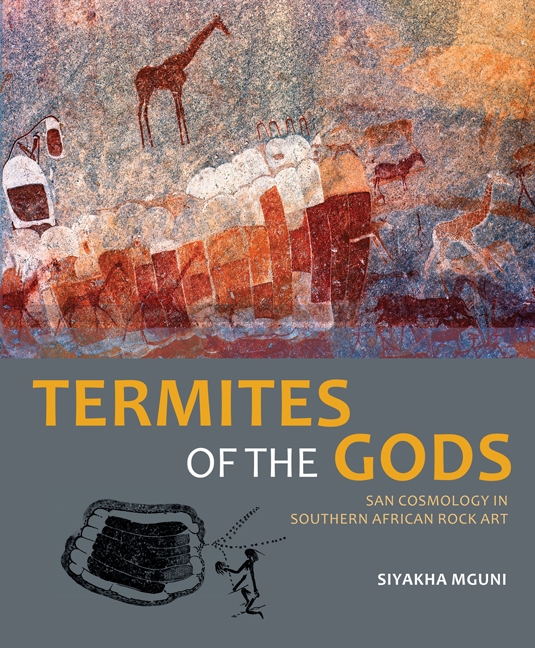Book contents
- Frontmatter
- Dedication
- Contents
- Acknowledgements
- Foreword
- Maps
- Explanatory notes
- Preface: Searching the pasts
- Introduction
- Chapter 1 Ancient mysteries on rocks
- Chapter 2 Meaning in San rock art
- Chapter 3 Tricksters, potency and dance
- Chapter 4 Ways of seeing San rock art
- Chapter 5 Probing deep into formlings
- Chapter 6 Formlings and San cosmological belief
- Chapter 7 Symbolic theatres of San cosmos
- Notes
- List of maps and figures
- Picture credits
- References
- Index
Preface: Searching the pasts
Published online by Cambridge University Press: 21 April 2018
- Frontmatter
- Dedication
- Contents
- Acknowledgements
- Foreword
- Maps
- Explanatory notes
- Preface: Searching the pasts
- Introduction
- Chapter 1 Ancient mysteries on rocks
- Chapter 2 Meaning in San rock art
- Chapter 3 Tricksters, potency and dance
- Chapter 4 Ways of seeing San rock art
- Chapter 5 Probing deep into formlings
- Chapter 6 Formlings and San cosmological belief
- Chapter 7 Symbolic theatres of San cosmos
- Notes
- List of maps and figures
- Picture credits
- References
- Index
Summary
From my long voyage of curiously searching the pasts of the land of my birth, two episodes echo vividly in my memory. They both relate to my earliest encounters with the ancient San paintings in the famed Matopo Hills (hereafter Matopo). I return to these experiences shortly. Running along the southwestern margin of Zimbabwe, these hills, which include the 424 km2 Matobo National Park World Heritage Site (Map 2), are famous for their picturesqueness and serenity. Yet little is known about the meaning of ‘Matopo’, a word whose origin is now obscure. To illuminate what is known of this name, I begin with a legend concerning Mzilikazi ka Matshobane, the founder and king of the Ndebele state ca. 1820s–1868. Mzilikazi and his core Nguni group (AbeZansi or ‘People of the South’) hurriedly left Zululand in the early 1820s in the wake of conflict with his political mentor Shaka ka Senzangakhona, who founded the Zulu state in the 1820s. The military skirmishes that ensued became part of a widespread warring period known as mfecane or difaqane in southern African history. In the central plateau of South Africa, Mzilikazi settled among the Sotho, Tswana and other polities, some of which he fought for several years. Among other polities they fought were the trekboers who, establishing their dominance in the Transvaal region, eventually pushed Mzilikazi's nation northwards across the Limpopo River. In time they settled in the southwestern portion of Zimbabwe.
Following many years of their northward drift from Zululand, the amaNdebele settled in the northern fringes of Matopo in the late 1830s. They rapidly exerted political influence in the surrounding territories and exercised overlordship over the abaNyubi, amaLozwi, amaKalanga and other communities they found on the plateau. Nearly all these groups are now part of the larger Ndebele polity, but their cultural and linguistic elements are discernible in Ndebele culture and vice versa. Very little in Ndebele culture suggests their interaction with hunter-gatherers of this region. By this time the bulk of original hunter-gatherers had long gone, as is known from the archaeological studies.
- Type
- Chapter
- Information
- Termites of the GodsSan cosmology in southern African rock art, pp. xix - xxxPublisher: Wits University PressPrint publication year: 2015



